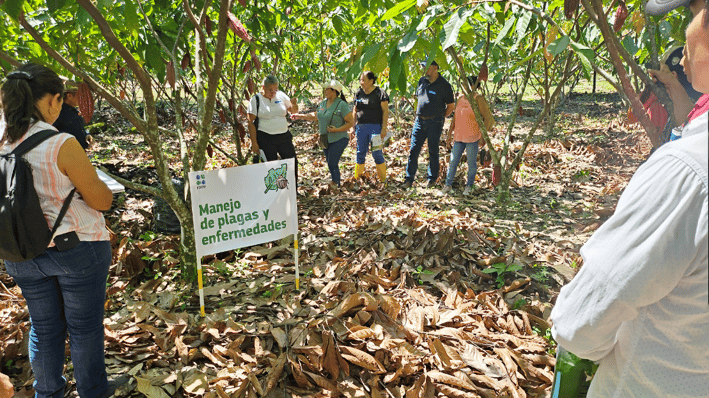| Implementing partner: Rare |
| Implementation period: February 2021 - May 2025 |
| Sub-sector: Just Rural Transition |
Behavioural and structural barriers prevent rural communities in Colombia from adopting regenerative agricultural practices. These are essential for combating climate change and ensuring food security. Conventional farming practices degrade soil, increase dependence on chemical inputs, and heighten vulnerability to climate change impacts such as erratic rainfall and prolonged droughts. These challenges reduce productivity and productivity benefits.
To address these barriers, the project employs behaviour science-based interventions in the Ariari region of Meta, a biodiverse area with agricultural potential that is also a major contributor to deforestation and greenhouse gas emissions. Farmers are segmented into early adopters, conditional adopters, and resistant adopters, allowing for tailored strategies. Early adopters serve as peer mentors, fostering trust and social proof within their communities. Social marketing campaigns and digital tools reshape norms and expand access to information.
By building a community-driven knowledge-sharing model and establishing systems for monitoring greenhouse gas emissions, the project positions regenerative agriculture as a socially desirable and economically viable alternative. This approach supports national sustainability goals and provides a scalable solution to the environmental and economic challenges faced by smallholder farmers.
This project helps smallholder farmers adopt regenerative agriculture by combining local leadership, community-driven learning, and technology to make sustainable practices the norm. By fostering knowledge-sharing and leveraging digital tools, the project ensures that regenerative farming becomes both practical and widely accepted.
A key feature of the project is its community-driven system for tracking ecosystem improvements, positioning regenerative agriculture as both a socially desirable and economically viable choice. By integrating behavioural science, peer learning, and digital tools, the initiative supports national environmental goals while boosting food security, climate resilience, and farmers' profitability.
The project is creating a scalable and cost-effective model for adopting regenerative and climate-smart agriculture. By integrating behaviour change strategies, technology, and community-driven development, it has empowered smallholder farmers (especially women) to adopt sustainable practices that reduce emissions, boost productivity, and enhance resilience.
- Mónica Varela, Vice-president, Rare Colombia

